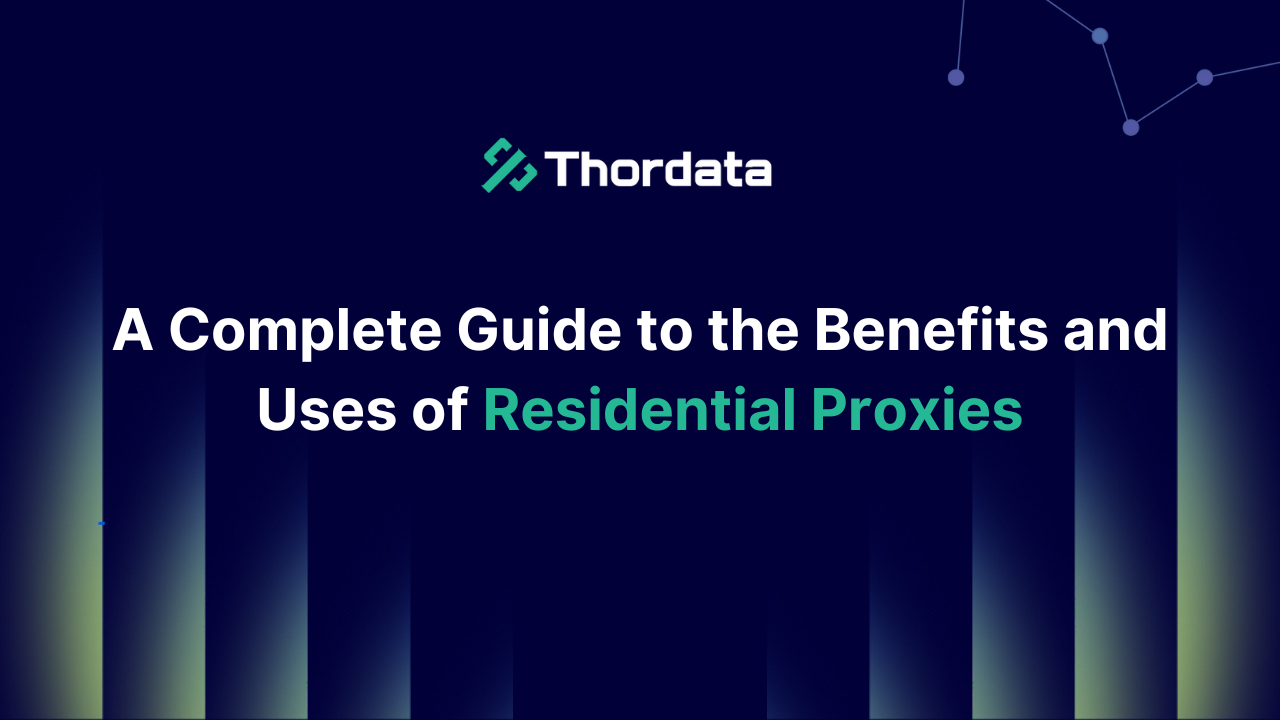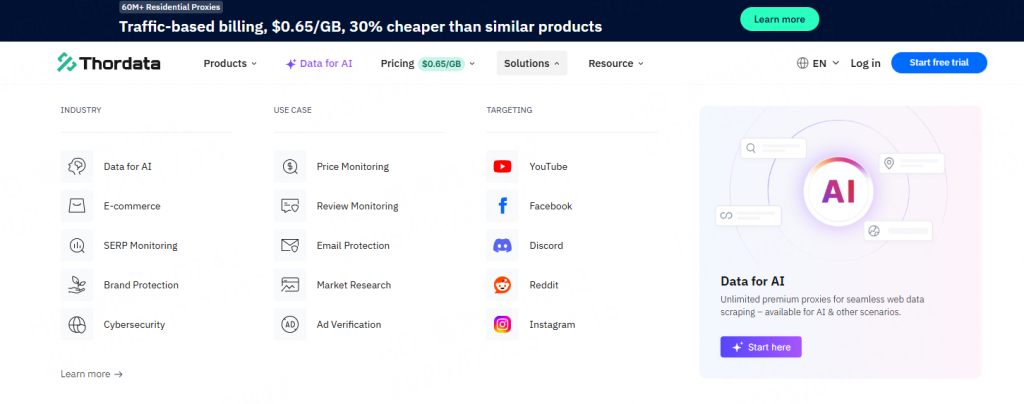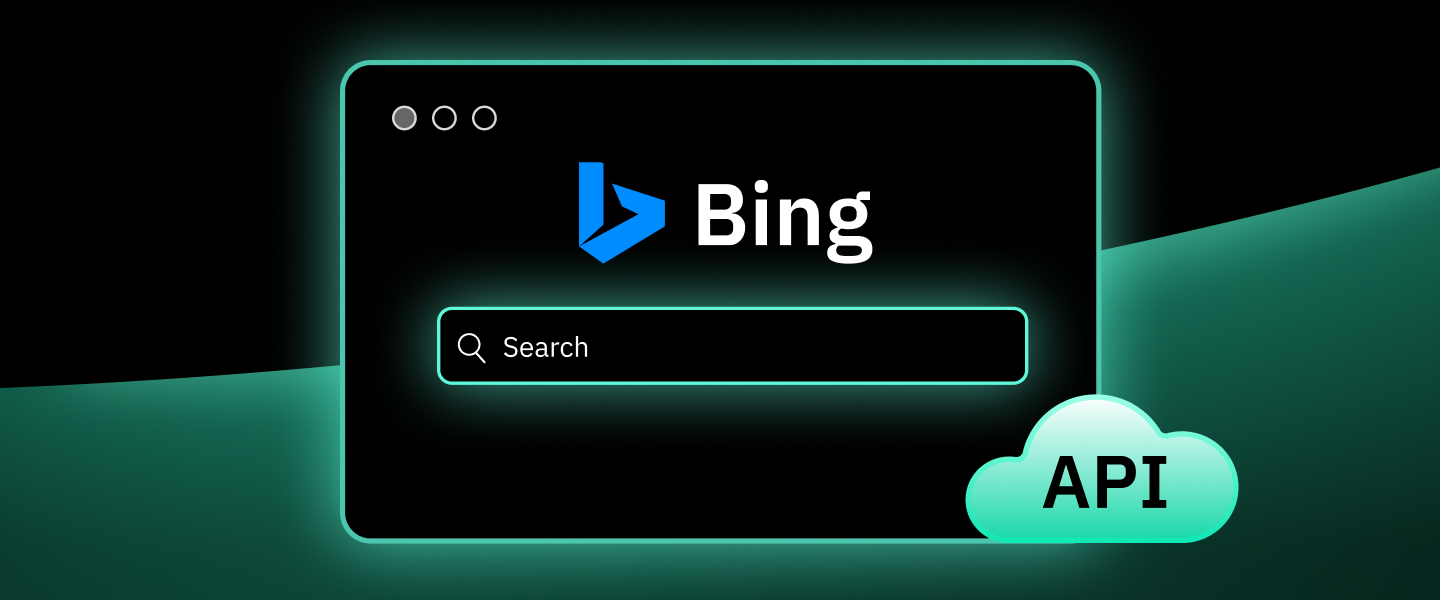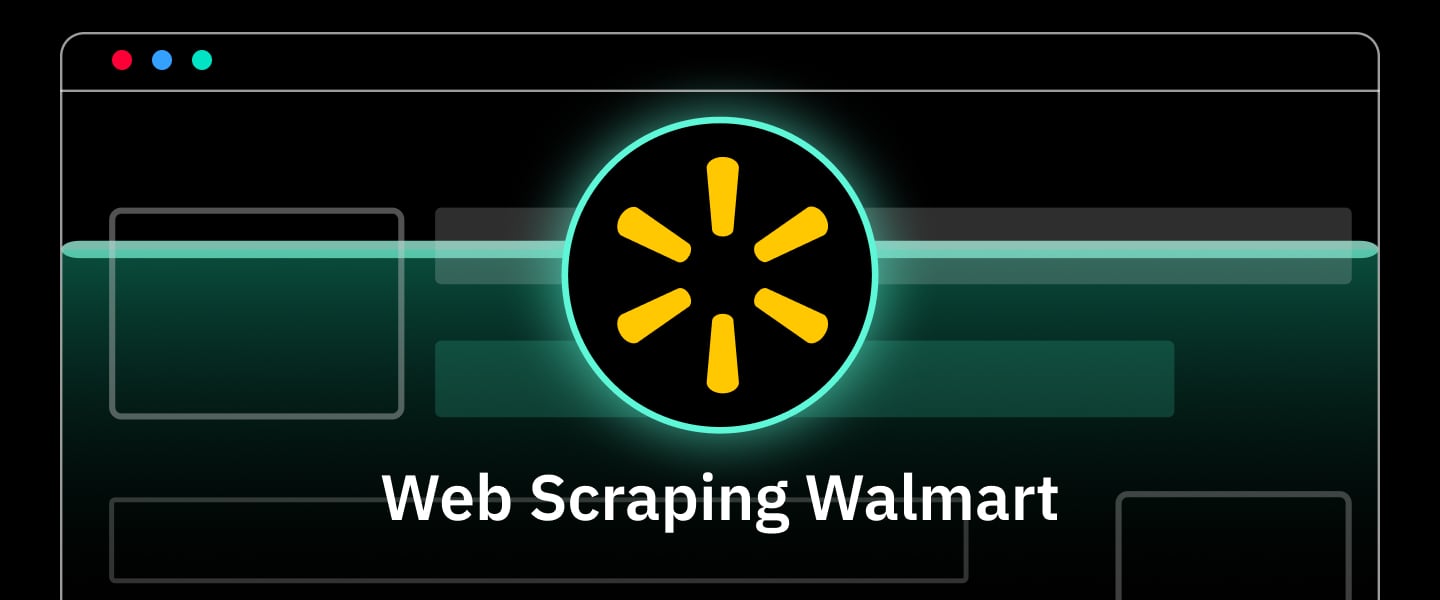Over 60 million real residential IPs from genuine users across 190+ countries.
Over 60 million real residential IPs from genuine users across 190+ countries.
Your First Plan is on Us!
Get 100% of your first residential proxy purchase back as wallet balance, up to $900.
PROXY SOLUTIONS
Over 60 million real residential IPs from genuine users across 190+ countries.
Reliable mobile data extraction, powered by real 4G/5G mobile IPs.
Guaranteed bandwidth — for reliable, large-scale data transfer.
For time-sensitive tasks, utilize residential IPs with unlimited bandwidth.
Fast and cost-efficient IPs optimized for large-scale scraping.
A powerful web data infrastructure built to power AI models, applications, and agents.
High-speed, low-latency proxies for uninterrupted video data scraping.
Extract video and metadata at scale, seamlessly integrate with cloud platforms and OSS.
6B original videos from 700M unique channels - built for LLM and multimodal model training.
Get accurate and in real-time results sourced from Google, Bing, and more.
Execute scripts in stealth browsers with full rendering and automation
No blocks, no CAPTCHAs—unlock websites seamlessly at scale.
Get instant access to ready-to-use datasets from popular domains.
PROXY PRICING
Full details on all features, parameters, and integrations, with code samples in every major language.
LEARNING HUB
ALL LOCATIONS Proxy Locations
TOOLS
RESELLER
Get up to 50%
Contact sales:partner@thordata.com
Proxies $/GB
Over 60 million real residential IPs from genuine users across 190+ countries.
Reliable mobile data extraction, powered by real 4G/5G mobile IPs.
For time-sensitive tasks, utilize residential IPs with unlimited bandwidth.
Fast and cost-efficient IPs optimized for large-scale scraping.
Guaranteed bandwidth — for reliable, large-scale data transfer.
Scrapers $/GB
Fetch real-time data from 100+ websites,No development or maintenance required.
Get real-time results from search engines. Only pay for successful responses.
Execute scripts in stealth browsers with full rendering and automation.
Bid farewell to CAPTCHAs and anti-scraping, scrape public sites effortlessly.
Dataset Marketplace Pre-collected data from 100+ domains.
Data for AI $/GB
A powerful web data infrastructure built to power AI models, applications, and agents.
High-speed, low-latency proxies for uninterrupted video data scraping.
Extract video and metadata at scale, seamlessly integrate with cloud platforms and OSS.
6B original videos from 700M unique channels - built for LLM and multimodal model training.
Pricing $0/GB
Starts from
Starts from
Starts from
Starts from
Starts from
Starts from
Starts from
Starts from
Docs $/GB
Full details on all features, parameters, and integrations, with code samples in every major language.
Resource $/GB
EN
首单免费!
首次购买住宅代理可获得100%返现至钱包余额,最高$900。
代理 $/GB
数据采集 $/GB
AI数据 $/GB
定价 $0/GB
产品文档
资源 $/GB
简体中文$/GB


Let’s talk about what a residential proxy is. These are IP addresses that Internet Service Providers give to homeowners’ devices. This makes them incredibly effective because websites trust these IPs – they look just like regular user connections. The way residential proxies work is straightforward – they mask your original IP address by routing your internet traffic through actual residential devices. You can find them in over 195 countries, and providers like Thordata give you access to more than 60 million residential IPs worldwide.
New users will find residential proxies useful in many ways. These tools help businesses gather market intelligence by bypassing geo-restrictions and running competitive analysis without getting blocked. They also excel at precise geo-targeting – right down to specific ZIP codes – which makes them perfect for SEO monitoring and ad verification.
This piece will show you everything about getting started with residential proxies in 2025. You’ll learn about the best residential proxies available and practical ways to use them effectively.

A residential proxy acts as a powerful middleman that routes your internet traffic through IP addresses from real households. These proxies use genuine IP addresses that Internet Service Providers (ISPs) give to homeowners. The connection to actual homes makes them look like legitimate users instead of automated systems.
ISPs assign residential proxy IP addresses to real physical devices in homes. These addresses belong to actual households and come with specific geographic and ISP details. This makes them look just like regular users. The proxies create a trusted digital identity that websites accept without question.
As one provider explains it, “Residential Proxies use real IP addresses supplied by Internet Service Providers to homeowners. Since the residential IP address is attached to a real, physical device, using it makes it easy to replicate organic human behavior”.
Residential proxies follow a simple process:
1. You start by requesting access to a target website
2. Your request goes to the residential proxy server instead of connecting directly
3. The proxy catches your request and replaces your real IP with its residential IP
4. Your modified request moves forward to the intended website
5. The website processes the request and sends back its response to the proxy
6. You get the response through the proxy while staying anonymous
The destination website only sees the residential proxy’s legitimate IP address during this whole process.
The main difference between residential and datacenter proxies comes from their source. Server farms generate datacenter proxies in bulk, while residential proxies come from real household devices connected to home internet networks.
Notable differences include:
Residential proxies might be slower than datacenter options. However, they work better at getting past sophisticated anti-bot systems. This makes them perfect for websites that block access aggressively.
Residential proxies come in several varieties. Each type serves specific use cases and provides unique advantages. Your choice of the right solution depends on understanding these different types.
Rotating residential proxies switch your IP address automatically after each request or at predetermined intervals. This rotation improves your anonymity and reduces the chances of getting blocked. You can use “sticky sessions” that keep the same IP for a set time—usually 1, 10, 30, or 60 minutes—when your tasks need multiple connections to the same website.
Static residential proxies (often called ISP proxies) keep the same IP address over time. These proxies blend the legitimacy of residential IPs with better performance since they run on datacenter servers. While they cost more, static proxies give you faster speeds and better reliability. This makes them perfect for tasks that need a consistent identity.
Mobile proxies work through mobile carrier networks and provide IPs that look like they’re from mobile devices. These proxies are great at staying anonymous because their IPs change often. They work well at getting past complex detection systems. You’ll find them especially useful when your traffic needs to appear as mobile device traffic.
Dedicated residential proxies give you exclusive IPs that nobody else can use at the same time. This exclusivity means better security, performance, and reliability. These proxies also let you control and customize more options compared to shared ones.
Multiple users can access shared residential proxies at once. While cheaper, these proxies give you less control and might run slower since users share the bandwidth. They still keep you anonymous because they come from real residential users and ISPs.
Private residential proxies (also called dedicated proxies) belong only to you. You won’t have to worry about other users’ activities affecting your proxy’s reliability or security. Since you don’t share bandwidth, private proxies run faster. They also let you customize more settings, but they cost more than shared options.

Residential proxies have become vital tools for businesses that need anonymity, security, and location-specific access in 2025. Here are the most valuable ways these powerful tools make a difference.
Residential proxies excel at gathering valuable information from websites that block automated bots. Industry data shows web scraping makes up 34.1% of all residential proxy usage. These proxies help businesses get past anti-scraping measures by using authentic IPs that look like real users. They make it possible to:
Residential proxies give you IP rotation capabilities that prevent detection when you need to extract large amounts of data.
Companies make use of residential proxies to verify their campaigns and spot fraudulent activity. This helps them:
Ad verification will give a better ROI on advertising by making sure campaigns reach real people, not bots.
SEO professionals find that residential proxies are the foundation of accessing search engine data from multiple locations. These tools let businesses do three key things:
Track rankings without triggering search engine detection algorithms that might block datacenter proxies. Get geo-targeted data about website rankings in specific regions. And analyze competitors without alerting search engines to these activities.
Social platforms don’t allow multiple accounts from one IP. Residential proxies let users:
Retailers use residential proxies to check competitor prices without getting blocked. Companies can adjust prices quickly, watch inventory levels, and test how their stores look to shoppers in different countries.
Thordata leads the residential proxy market because it strikes the perfect balance between performance and cost. Their network features over 60 million residential IPs that deliver fast and stable response times. The connection speeds stay consistent even during busy periods, while other providers slow down when traffic peaks.
Thordata’s user-friendly dashboard gives you a clear picture of usage stats and emphasizes request errors. The setup process is straightforward – you don’t need technical knowledge to get started. Teams running AI and ML workflows will find Thordata’s network delivers the low latency their high-performance systems need.
| Provider | IP Pool Size | Global Coverage | Starting Price | Free Trial | Key Strength |
| Thordata | 60M+ | 195+ countries | USD 1.00 (5GB) | Yes | Fast response time, affordability |
| Bright Data | 72M+ | 195+ countries | USD 8.40/GB | Yes | Advanced proxy tools |
| Oxylabs | 102M+ | 195+ countries | USD 8.00/GB | Yes | Largest IP network |
| Decodo (Smartproxy) | 40M+ | 195+ countries | USD 12.50/GB | 3 days | User-friendly interface |
My experience testing proxy services taught me several significant factors you should consider before deciding:
Network size and diversity – A bigger pool helps you avoid blocks more easily. Providers with 30 M+ IPs usually perform better for data-heavy tasks.
Geographic targeting options – The best providers let you target by country, city, and ZIP code.
Protocol support – Make sure your provider supports the protocols you need (HTTP, HTTPS, SOCKS5).
Rotation capabilities – You’ll need to choose between sticky sessions (keeping the same IP) or rotating IPs.
Pricing structure – Occasional users benefit from pay-as-you-go plans, while regular users get better value from subscriptions.
The best providers offer quick customer support through multiple channels, available 24/7.
Residential proxies have, without doubt, become vital tools that businesses need to navigate the complex digital world of 2025. These powerful tools provide authentic IP addresses from real residential devices, making them undetectable compared to standard datacenter proxies. This piece explores how routing your traffic through legitimate residential IPs helps you bypass restrictions and stay anonymous. You should try Thordata’s residential proxies to experience their unique service yourself.
Frequently asked questions
How do I set up and use residential proxies?
To use Thordata residential proxies, first log into your proxy provider account. Then, configure the proxy settings in your browser or application with the provided IP address, port number, username, and password.
Are residential proxies completely untraceable?
While residential proxies significantly enhance anonymity by masking your original IP address, they don’t guarantee complete untraceability.
Is it legal to use residential proxies?
Using residential proxies is generally legal, but the legality depends on how they’re used and your location.
About the author

Jenny is a Content Specialist with a deep passion for digital technology and its impact on business growth. She has an eye for detail and a knack for creatively crafting insightful, results-focused content that educates and inspires. Her expertise lies in helping businesses and individuals navigate the ever-changing digital landscape.
The thordata Blog offers all its content in its original form and solely for informational intent. We do not offer any guarantees regarding the information found on the thordata Blog or any external sites that it may direct you to. It is essential that you seek legal counsel and thoroughly examine the specific terms of service of any website before engaging in any scraping endeavors, or obtain a scraping permit if required.
 Looking for
Top-Tier Residential Proxies?
Looking for
Top-Tier Residential Proxies? 您在寻找顶级高质量的住宅代理吗?
您在寻找顶级高质量的住宅代理吗?
Web Scraping eCommerce Websites with Python: Step-by-Step
This article provides a detail ...
Yulia Taylor
2026-01-29

10 Best Web Scraping Tools in 2026: Prices and Rankings
In this article, discover the ...
Anna Stankevičiūtė
2026-01-29

Best Bing Search API Alternatives List
Discover the best alternatives ...
Anna Stankevičiūtė
2026-01-27

The Ultimate Guide to Web Scraping Walmart in 2026
Learn how to master web scrapi ...
Jenny Avery
2026-01-24

Concurrency vs. Parallelism: Core Differences
This article explores concurre ...
Anna Stankevičiūtė
2026-01-24

Best Real Estate Web Scraper Tools in 2026
Learn about the leading real e ...
Anna Stankevičiūtė
2026-01-23

Playwright Web Scraping in 2026
Learn how to master Playwright ...
Jenny Avery
2026-01-22

Top 5 Wikipedia Scraper APIs for 2026
In this article, we will help ...
Anna Stankevičiūtė
2026-01-19

Puppeteer vs Selenium: Speed, Stealth, Detection Benchmark
Benchmark comparing Puppeteer ...
Kael Odin
2026-01-14